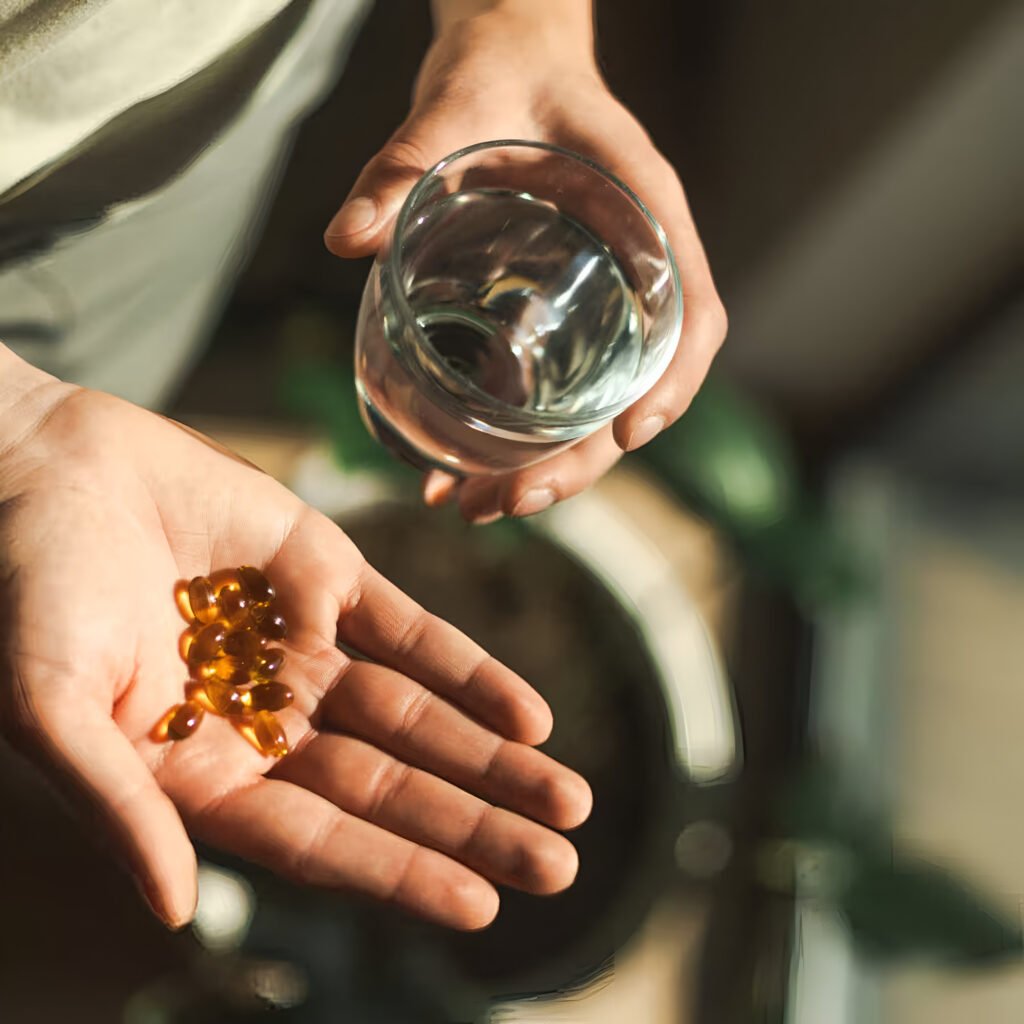
Could one small supplement each day help you stay biologically younger? According to a new Harvard-affiliated study, vitamin D may do more than support bone health—it might actually slow down cellular aging.
What the Study Discovered
A new study in The American Journal of Clinical Nutrition examined the influence of vitamin D on telomeres, protective caps on the ends of chromosomes. Telomeres gradually get shorter as we grow older, and this shortening contributes to numerous age-related illnesses.
The study’s main findings:
• Data from the famed VITAL clinical trial were used by researchers.
• More than 1,000 volunteers (women over 55 and men over 50) participated for four years.
• Volunteers were randomly assigned either
• Vitamin D3 (2,000 IU daily),
• Omega-3 fatty acids (1 g daily), or
• A placebo.
• Those who received vitamin D experienced noticeably less telomere shortening compared to the placebo group.
• The retardation of cellular aging was equivalent to nearly three additional years of youth.
Dr. JoAnn Manson, one of the lead researchers, pointed out that this is the first large, long-term trial to demonstrate how vitamin D can protect telomeres and minimize the impact of biological aging.

Why Telomeres Matter
• Telomeres safeguard your DNA against damage.
• As they get shorter, cells get older and more likely to malfunction.
• Shorter telomeres have been linked to conditions such as cancer, heart disease, and neurodegeneration.
Beyond Telomeres: More Benefits of Vitamin D
Vitamin D is commonly referred to as the “sunshine vitamin” since your body produces it when exposed to sunshine. But it has many functions:
• Helps maintain strong bones by aiding your body’s absorption of calcium.
• Improves immunity, fighting off infection.
• Fight inflammation, which is linked to many long-term diseases.
• Could be helpful for mood and mental clarity.
• Low levels have been associated with fatigue, depression, and brain fog.

Are You Getting Enough?
A lot of people are deficient without knowing so. Here’s why:
• Lack of sun exposure (because of indoor working, sunscreen, or air pollution).
• Few food sources (foods rich in vitamin D are fatty fish, egg yolks, and fortified milk).
• Seasonal variation and darker skin color may also impact vitamin D synthesis.
What You Can Do
• Take a daily dose of 2,000 IU, which was employed in the study.
• Have your vitamin D level checked.
• Incorporate vitamin D-rich foods into your diet.
• Take some safe time in the sun every day.
Final Thoughts
Another step towards learning how small decisions in your lifestyle—such as a daily vitamin—can make large differences in long-term health. More research is certainly in order, but vitamin D could be your secret to remaining healthier and younger on the cellular level.









